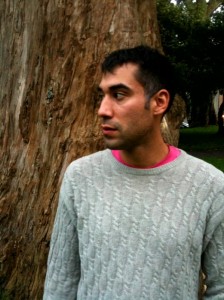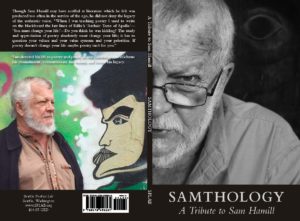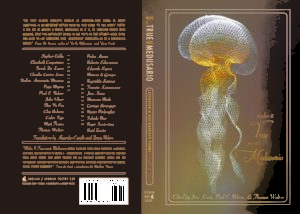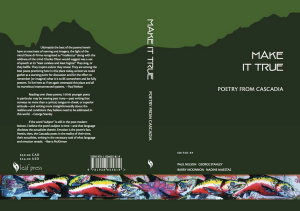
Cedar Sigo
On September 24th, poets will gather (at SPLAB) & in 450 cities around the world in an event called 100 Thousand Poets for Change. The event is designed to change how we see global community and work to cure symptoms of a world that, in Gary Snyder’s words, is “upside down.”
Seattle’s venue for 100 Thousand Poets for Change is SPLAB in Columbia City and the featured poet is Suquamish native Cedar Sigo. After growing up on the Port Madison Indian Reservation across the Sound from Seattle, he attended Naropa University on a scholarship and now lives in San Francisco. His new book is published by the famed City Lights and is entitled Stranger in Town. SPLAB Presents for the week of September 12. The entire interview can be downloaded here. Hear SPLAB Presents every Thursday at 4:30 on KBCS.FM, 91.3.

About Splabman
Poet & interviewer Paul E Nelson founded SPLAB (Seattle Poetics LAB) & the Cascadia Poetry Festival. Since 1993, SPLAB has produced hundreds of poetry events & 600 hours of interview programming with legendary poets & whole systems activists including Allen Ginsberg, Michael McClure, Joanne Kyger, Robin Blaser, Diane di Prima, Daphne Marlatt, Nate Mackey, George Bowering, Barry McKinnon, José Kozer, Brenda Hillman & many others. Paul’s books include American Prophets (interviews 1994-2012) (2018) American Sentences (2015) A Time Before Slaughter (2009) and Organic in Cascadia: A Sequence of Energies (2013). Co-Editor of Make It True: Poetry From Cascadia (2015), 56 Days of August: Poetry Postcards (2017) and Samthology: A Tribute to Sam Hamill (2019) Make it True meets Medusario (2019), he’s presented poetry/poetics in London, Brussels, Nanaimo, Qinghai & Beijing, China, has had work translated into Spanish, Chinese & Portuguese & writes an American Sentence every day. Awarded a residency at The Lake, from the Morris Graves Foundation in Loleta, CA, he’s published work in Golden Handcuffs Review, Zen Monster, Hambone, and elsewhere. Winner of the 2014 Robin Blaser Award from The Capilano Review, he is engaged in a 20 year bioregional cultural investigation of Cascadia and lives in Rainier Beach, in the Cascadia bioregion’s Cedar River watershed.





